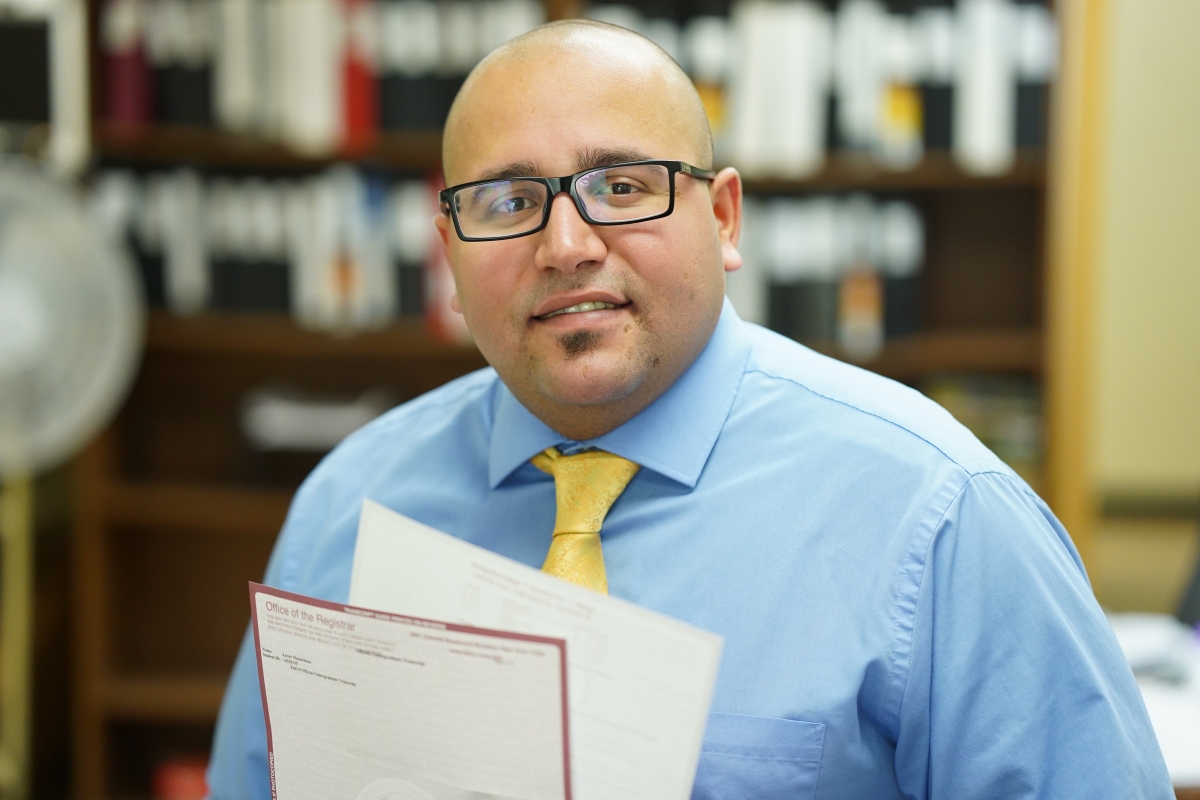People First
NYSCAS alum and current SHS student remembers the professors and fellow students who helped him along his educational and professional journey.

“Touro professors are eager to help you if you reach out,” Richard Martinez said. “Everybody is willing to help everybody.”
Now earning his Master of Science in Industrial and Organizational Psychology at the Touro College School of Health Sciences, Richard graduated from NYSCAS in 2016. He and his wife, Inga Wellington, had decided they should finish college and were looking for one that would allow them to balance work and caring for their two young children while earning their degrees. A friend of Inga’s recommended NYSCAS because of its family-oriented nature and reputation as a school that would meet the needs of working adults
After speaking with an academic advisor at NYSCAS’s Stillwell location, which would later move to Neptune Avenue, the couple was impressed with NYSCAS’s small class sizes and the individual attention the college gives to students.
“Touro builds a relationship where students feel comfortable talking to counselors, faculty, and peers,” Richard said.
One professor who particularly stood out to Richard was Professor Brooke Markowitz, who taught Obesity and Eating Disorders. “The energy and enthusiasm she had teaching the course wasn’t like anything I’ve ever seen before,” he said. “It was a night class, but I couldn’t wait until the workday was done to attend. I learned a lot about eating disorders, nutrition, and how to treat people in general—to not judge by appearance or habits, because there’s something deeper in every person.
Richard is still in touch with many professors and students from NYSCAS. “You shouldn’t forget about the people who have impacted your life, whether they helped you write a paper or navigate a tough course. And you should help people out, too, because it will come back to you.”
That philosophy is why Richard participates in a mentoring program to help first-year students in his graduate school. It’s also why he stayed with Touro in multiple capacities: both as an admissions counselor at NYSCAS and graduate student at SHS.
“It gave me a good opportunity to stay in the Touro family,” he explained. “Staying at Touro gave me a confidence boost that helped me realize I could get into grad school and have the resources to support me through it.”
When he graduated with his bachelor’s degree, Richard researched what he could do with his psychology background and discovered Touro’s Industrial and Organizational Psychology program. “It was something I could see myself doing—applying psychology to real-world problems.”
Richard is enthusiastic about his graduate program. Industrial and Organizational Psychology is still a new field, and he describes it as one that applies psychology theories to business principles. Similar to human resources, professionals in the industry help businesses identify and resolve issues with employees.
Looking ahead, Richard is considering becoming an executive coach, who works with corporations to eliminate conflicts and increase production and productivity. “An executive coach might create exercises and approaches to resolve issues, since employees might feel more comfortable sharing their problems with an outsider,” he explained.
This will require a large network and client base, which Richard is working to build through social media and networking. One incentive of the program, he said, is that it requires a summer internship, which helps students connect with large corporations.
Richard is firmly rooted in the Touro family. His wife Inga, who also graduated from NYSCAS, is now earning her Master of Science in Special Education at the Touro College Graduate School of Education.
His deep connections to Touro make him appreciate how much the school has shaped him and his career path—and he believes other students should take advantage of what Touro provides. “Do not get overwhelmed,” he said. “Professors are eager to help if you just ask. There are plenty of resources available.”
Most importantly, he said, “Do not forget your peers and professors. Continue to reach out to them.” After all, you never know who might change your life.

